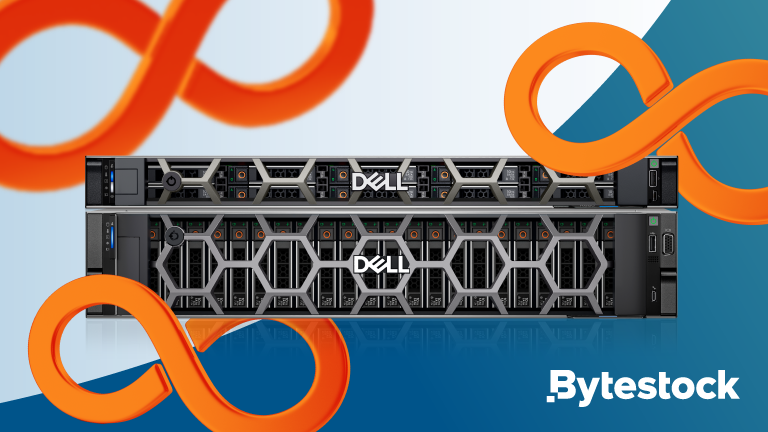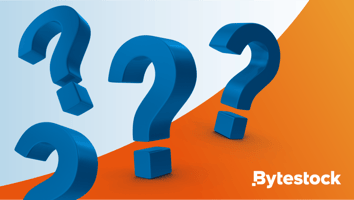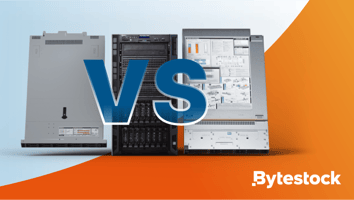At Bytestock, we're proud to be a leading IT hardware provider, specialising in refurbished and...
The Need for a Circular Economy

In today's fast-paced world, the need for sustainable practices is more pressing than ever. For the IT hardware industry, embracing a circular economy is not just a trend but a necessity. By focusing on refurbishing and reusing IT equipment, we can significantly reduce electronic waste, conserve resources, and promote environmental responsibility. This approach not only benefits the planet but also offers cost-effective solutions for businesses looking to optimise their IT infrastructure.
What is a Circular Economy?
A circular economy offers an alternative to the traditional linear model of "make, use, dispose." In this approach, resources are kept in use for as long as possible, extracting maximum value from them during their use, and then recovering and regenerating products and materials at the end of their service life.
This model gradually decouples economic activity from the consumption of finite resources, aiming to eliminate waste from the system entirely.
Why Do We Need a Circular Economy?
As the global population continues to grow rapidly, the demand for raw materials is increasing while supplies are decreasing. Smarter resource use will enable people to enjoy a prosperous life on a healthy planet with a strong and sustainable economy. Here are five benefits of a circular economy:.
Resource Depletion: The world’s natural resources are finite. In a linear economy, we continuously extract resources, use them, and dispose of them as waste. This model is not sustainable because it uses up resources, causing scarcity and higher costs. A circular economy aims to minimise resource extraction by reusing and recycling materials, thus conserving resources and reducing environmental impact.
Waste Reduction: One of the most significant benefits of a circular economy is the reduction of waste. In the linear model, people throw away products after one use, creating a lot of waste in landfills and oceans. The circular economy promotes designing products for longevity, reparability, and recyclability. This approach reduces waste and encourages a more sustainable use of materials.
Economic Benefits: Transitioning to a circular economy can drive innovation and create new economic opportunities. By focusing on sustainable product design, businesses can develop new markets and revenue streams. A circular economy helps save resources, cut costs, and strengthen the economy. It reduces the risks of running out of resources and price changes.
Environmental Protection: The linear economy contributes significantly to environmental degradation through pollution, habitat destruction, and greenhouse gas emissions. The circular economy focuses on reducing harm to the environment by encouraging practices like recycling, using renewable energy, and cutting emissions. By reducing the need for raw material extraction and waste disposal, a circular economy helps protect ecosystems and biodiversity.
Resilience and Adaptability: A circular economy enhances resilience by promoting a more diversified and sustainable use of resources. It encourages businesses and communities to innovate and adapt to changing conditions, such as resource shortages and climate change. By reducing dependence on finite resources and promoting sustainable practices, a circular economy can help societies become more resilient to economic and environmental shocks.
Social Benefits: The circular economy can also have significant social benefits. It can create jobs in new sectors, such as recycling, repair, and remanufacturing. Moreover, promoting the efficient use of resources can contribute to a fairer distribution of wealth and resources. This model also encourages a shift towards more sustainable consumption patterns, benefiting society as a whole.
Why Buy Refurbished IT Hardware?
Investing in refurbished IT hardware offers unbeatable value, with potential savings of 30%–70% compared to new equipment, allowing for budget-friendly yet high-quality solutions. It provides the flexibility to customise IT infrastructure to specific needs and gives you access to legacy hardware to support the continued use of existing systems. And of course, choosing refurbished hardware promotes environmental sustainability, aligning with eco-conscious practices and supporting the circular economy. You can find out more on the Bytestock site.
At Bytestock, we offer a range of refurbished and recertified IT hardware. To find out what's suitable for your needs, contact us. Or if you know exactly what you're looking for, visit our Bytestock webshop.




-1.png?height=200&name=MicrosoftTeams-image%20(21)-1.png)
